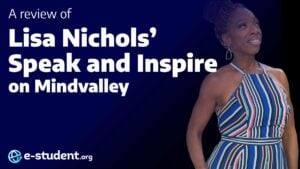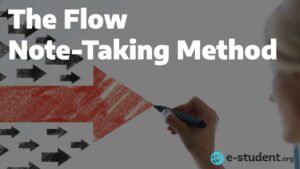I’m excited to share my thoughts on a Mindvalley quest – Ken Wilber’s “The Integral Life.” As a counselor deeply connected to the course’s subject matter, I couldn’t have been more thrilled when I opened the course overview and saw Ken Wilber leading the way. Having frequently referred to his work in my practice as a counselor, he would seem to me the perfect choice to guide a transformative journey for those willing to explore their consciousness. But let’s see how well he does in this course.
Table of Contents
Overview of Integral Life Practice
Described as the “Einstein of consciousness,” Ken Wilber’s work has resonated with me for years. I even used his book “Integral Life Practice” as a foundational resource in crafting one of my own counseling programs. His ideas have not only informed my work but have also played a significant role in my own personal growth journey.
Seeing his teachings come to life on Mindvalley, beyond the pages of a book, is a genuine treat. Ken is the creator of “integral theory,” a comprehensive framework for living distilled from Eastern and Western knowledge systems, and this course brings his philosophy into practical, interactive learning.
The course takes you on a 35-day journey divided into five parts: The integral approach, the integral mind, the integral spirit, the integral body, integral relationships, and work. Having previously read his books, I understand that while his words are wise, translating them into practical life changes can be challenging. This course bridges that gap beautifully.
The course structure is well-organized, with each part addressing essential aspects of life that everyone can relate to. Accompanied by a workbook, it provides a structured approach to improving various facets of your life or simply gaining a better understanding of where you currently stand.
Ken’s introductory video is a masterpiece, setting clear expectations for the course. He takes his vast knowledge and makes it personal and practical. This, I found, was sometimes missing when reading his written works. Hearing him speak directly to the Mindvalley audience, grounding his teachings in real-life applications, was truly inspiring. I especially appreciated his insight into personal development programs, emphasizing that “when you make room for everything, everything gets better.” It’s practical wisdom that makes perfect sense.
Let me clarify; this course is unequivocally Ken Wilber’s creation. It’s not someone else teaching parts of his work; it’s Ken himself speaking directly to Mindvalley users.
In summary, “The Integral Life” is an opportunity to embark on a profound journey with a master of consciousness. Whether you’re new to Ken Wilber’s ideas or a long-time admirer, this course offers a structured and immersive experience that can genuinely impact your life. It’s an invitation to explore, reflect, and grow across the integral aspects of life. Don’t miss this chance to learn from one of the greatest thinkers of our time.
The accompanying workbook
Before we take a deeper look at the sources of Ken Wilber’s quest, let’s consider the main supplementary resource of this course: the workbook.

Much like other courses I’ve had the pleasure of exploring on Mindvalley, having a workbook at your side is a game-changer. In this course, you have the opportunity to document your ongoing Integral Life Practice (ILP) and adapt it as you progress. As someone who has utilized a similar tool in my own courses, I can attest to its effectiveness in breaking down complexity into practical, manageable components for reflection.
One of the challenges I’ve encountered when solely reading Ken’s work is that it’s easy to get lost in the depth of content. However, this course provides the perfect immersive experience into Ken’s teachings as you consistently return to the workbook to track your progress and identify areas for growth or adjustment.
This workbook serves as a guiding light, ensuring that you remain connected to your Integral Life Practice throughout the course. It’s an invaluable resource that empowers you to witness the evolution of your journey and recognize the positive transformations taking place.
The availability of the community of Mindvalley learners is also very helpful in this regard and can really help you become immersed in Ken’s work compared to if you just read his books.
Course highlights
I really liked the way Ken introduces you to the course, highlighting the importance of different perspectives and how common ideas about personal growth often miss certain dimensions. As an integral theory, the course contains a wide range of lessons, but I have tried to select a few that I found particularly interesting to highlight.

The AQAL framework
I really enjoyed the lesson on the AQAL (All Quadrants All Levels) model, as it gave an overview of how to work with integral theory. I was, however, reminded of his books and how theoretically dense everything is. Perhaps this is just a natural byproduct of learning from someone like Ken, but I couldn’t help but think of imagery in other courses and wondered if such could have been helpful.
Rather than a negative, this is more a word of warning about what the course is like. This theme continued throughout all the modules. It is extremely formally educational about serious topics that can help ground them into your practice. There is very little in the way of more light-hearted imagery, music, and similar, which you’d often see in courses. If you are looking for something light and breezy, then this may not be for you.

Business and work
What I have always loved about Ken Wilber’s work and this course is the way it breaks down into tangible and relatable components. The world of work is something we can all relate to, and here it’s wonderful to be able to learn from him in the integral framework and then to think about changes we may be able to make in our own lives.

Relationships and romance
Whether we are in a romantic relationship or not, most of us are at least thinking about it. Bringing his theory to such relatable areas of our lives helps counteract, to a certain degree, his theory-heavy teachings.

The importance of working on your shadow
It’s great that Ken brings attention to the ‘shadow’ – the dark parts of ourselves that we’re not immediately aware of. They are not necessarily negative or positive; they are things waiting to come out, and when they do come out, we become more whole. I have used the analogy myself of the shadow being like a dark room in our house, but when we switch the light on, we can see it’s just part of everything else. The shadow is often omitted from other work, and I agree with Ken; it is a vital part of our personal growth. Here you’ll be able to learn about the shadow and then use this as a point of reflection and hopefully be aware of it as a concept when moving forward.
The initial assessment
I really liked the idea of an initial assessment of where you are at. Again, it’s that value we see in Mindvalley courses of seeing where you are at and then where you may be at the end of the course and comparing. However, I feel it is important to mention that whereas there is obviously value in this kind of qualitative self-assessment, such reports are, by nature, quite unreliable for measuring progress. This is especially the case in a course like this, where we are not measuring an actual tangible outcome. Can we really know if we are more connected to the universe or have a higher purpose?
The notion of God
If you are familiar with Ken’s work, you will notice he will regularly refer to concepts of God as well as spirituality. In my opinion, he goes into an important discussion about viewing God from different levels, some more primitive. Whereas I have always personally enjoyed Wilber’s work and recommend it, I will say I know from experience that people may have an aversion to such terms or may find an instant wish to dismiss him on this point. If you are someone who feels a sense of wanting to push away here, I would still encourage the course – it can help to be aware in advance of the concepts Ken uses.

How can you access the quest?
You can access this quest through a Mindvalley membership, which costs $99 per month or $499 for a year. Apart from this quest, membership also gives you access to almost all other quests on Mindvalley – many of which are great complements to this one.
Importantly, if you are unsure whether the program is worth it for you, Mindvalley membership comes with a no-questions-asked trial period of 15 days so you can try out the program with no financial risk.
Free masterclass
Still not sure whether this quest is for you? Mindvalley has very generously made available a free masterclass with Ken Wilber, which introduces some of the key teachings from his quest. You can sign up for the masterclass here.
Conclusion and recommendation
To conclude, I think this is a fantastic course, and I’d go as far as to say a perfect way to be introduced to Ken Wilber’s work or to become more immersed if you are already a fan. As someone who was always intrigued by him, I did honestly find his work difficult to grasp in book form and often fell behind in discussions. It was only when I read his book “Integral Life Practice” that I found a way to start to integrate his actual teachings. His Mindvalley course with the same name goes that step further, making it more accessible with video lessons, worksheets, and a supportive community of learners.
As someone who finds Ken’s work absolutely fascinating, I wanted to be a little devil’s advocate to explore if all the theory is really needed for us to grow. I’d say maybe it’s not. If you are primarily looking for straightforward advice to just make changes in your life, this course may not be for you. But if you are looking for a theoretical framework that helps make sense of it all intellectually, you will enjoy embracing the theory and grounding it in the practicalities.
The negative points I highlighted are more natural consequences of Wilber’s theory than any faults with the course per se. His work involves speaking about ‘God’, so if you do not like this, then you will likely not be able to connect with it. As discussed throughout, since his work is very theoretical, it follows that the videos would not have quite as accessible a tone as other courses on Mindvalley. This course is for those looking to work on themselves and who wish to immerse themselves in the ideas of a unique thinker of our time.
Black Friday Special – get 40% off your Mindvalley Membership to get access to 100+ personal growth programs. Note that the discount is applied to the lifetime of your account – not just your first payment.




